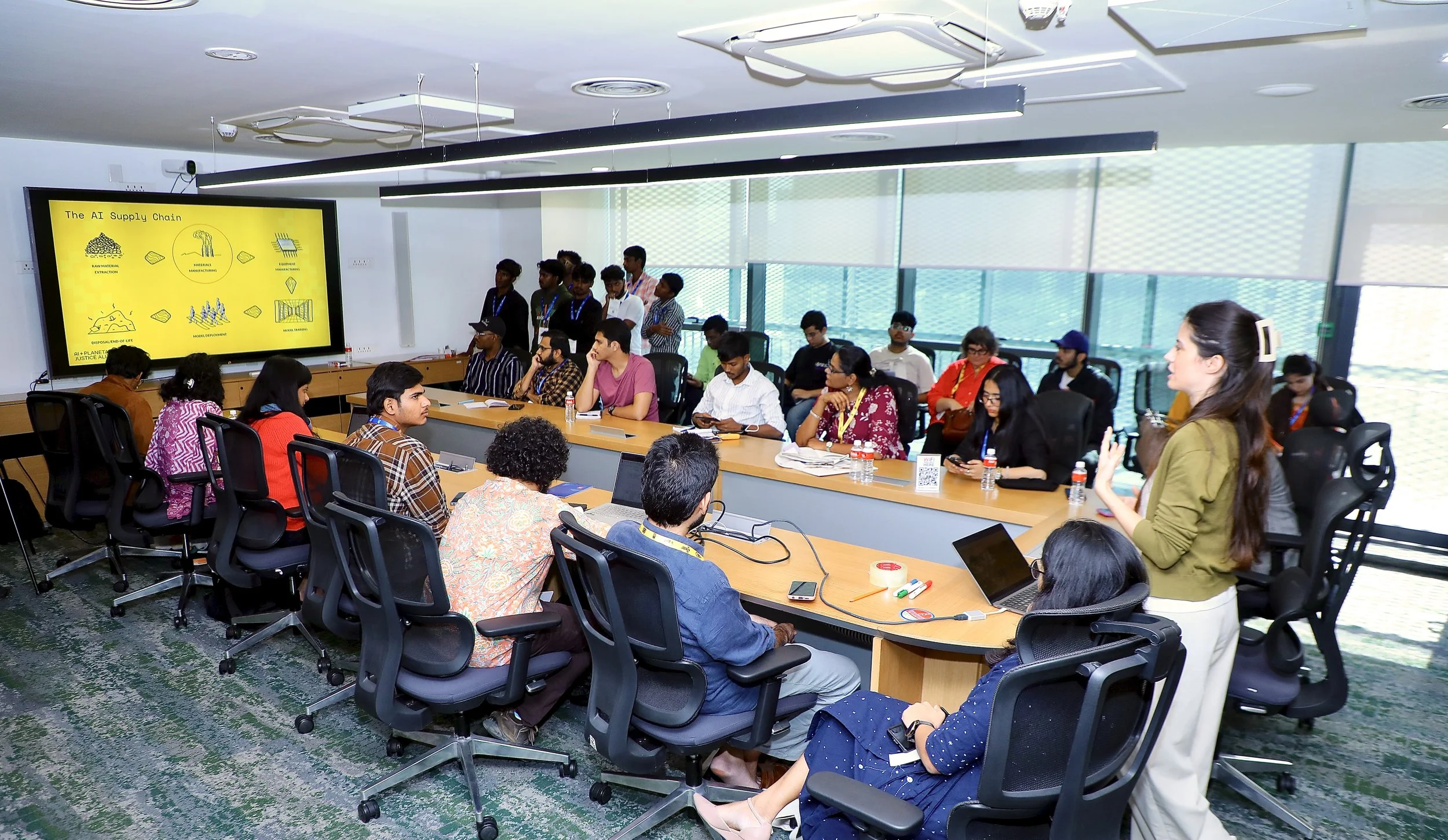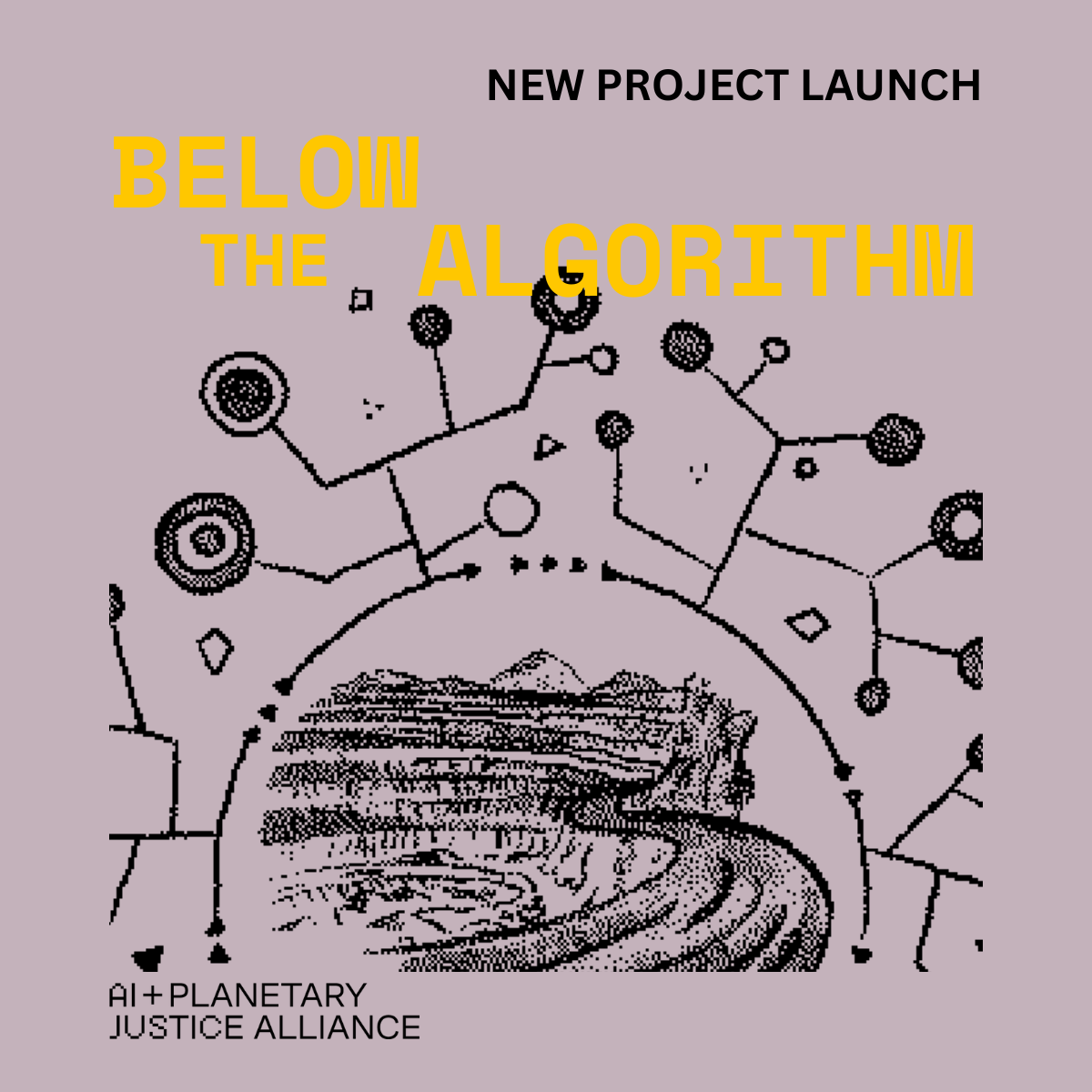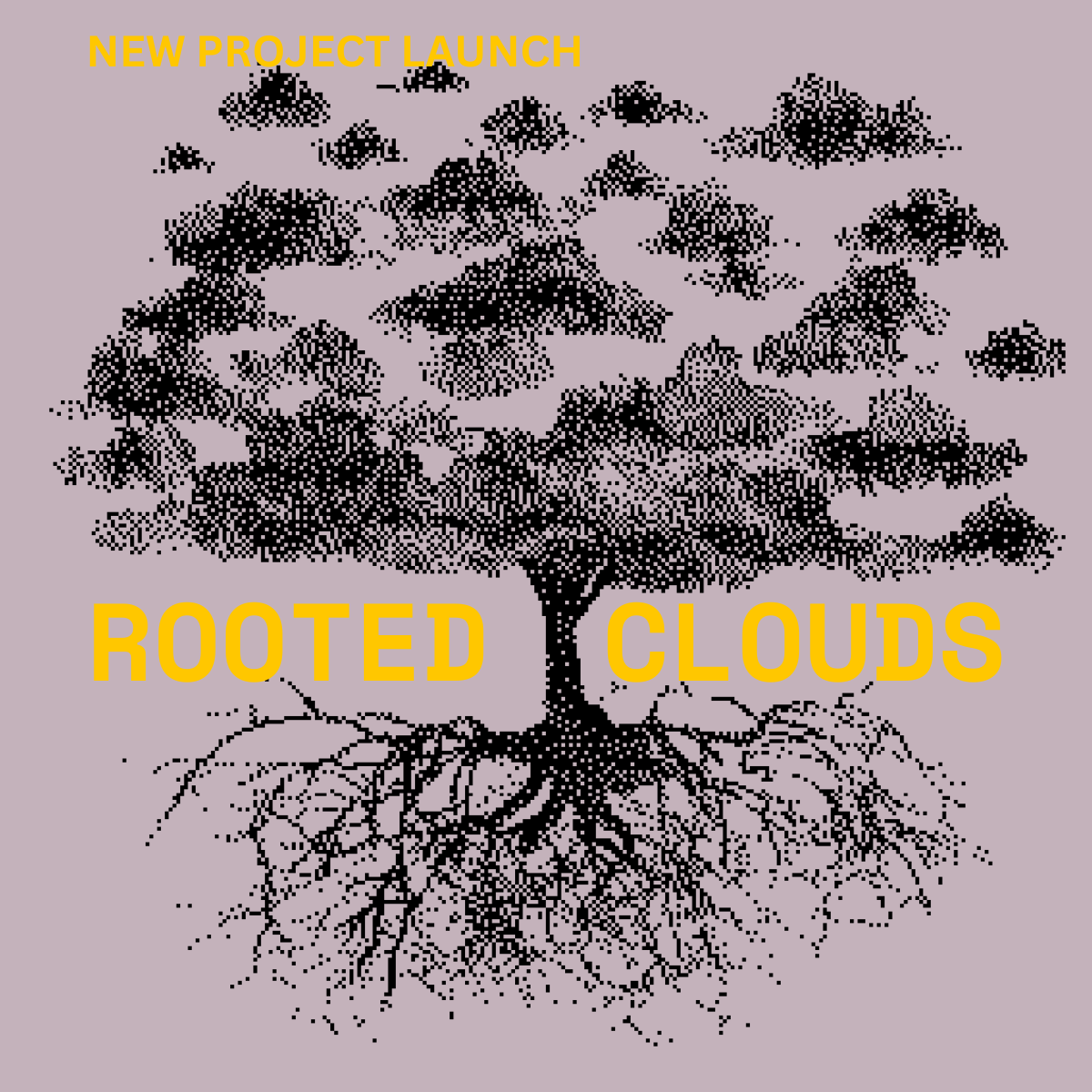
Exploring the planetary justice impacts of AI across its supply chain
The AI + Planetary Justice Alliance is a global collective of researchers, activists, and artists, working to address the socio-environmental impacts of artificial intelligence (AI) across its entire lifecycle. From the extraction of raw materials to the disposal of AI systems, we follow the AI supply chain to uncover hidden injustices and drive actionable change.
Our Mission
and Vision
The Alliance envisions a world where AI systems are guided by principles of equity, solidarity, and more-than-human relationality. To achieve this, it focuses on:
Building Knowledge: Researching and sharing insights on AI’s socio-environmental impacts across its lifecycle, emphasizing marginalized perspectives.
Connecting Communities: Creating a global network of activists, artists, researchers, and organizations committed to planetary justice in AI.
Co-Developing Solutions: Partnering with communities to design frameworks addressing AI’s harms while promoting equity and ecological responsibility.
Planetarity
Planetarity, as coined by Gayatri Chakravorty Spivak, refers to an ethical and relational understanding of the planet that transcends globalization's homogenizing forces, embracing the diversity and interconnectedness of human and more-than-human life.
Planetary Justice
Planetary justice advocates for equitable governance of Earth's resources, addressing historical and structural injustices to ensure ecological and social equity across generations.
AI + Planetary
Justice Alliance
At the AI + Planetary Justice Alliance we investigate and challenge the ecological and social injustices embedded in the AI industry and supply chain. Our name reflects our commitment to understanding AI not as an abstract, immaterial force, but as a deeply material and political system shaped by planetary-scale extractivism.
Not All AIs Are Created Equal
The term Artificial Intelligence is broad and often ambiguous, covering a vast range of technologies. At the AI + Planetary Justice Alliance, we use "AI" to refer specifically to automated systems that have the most significant planetary justice implications. These include machine learning (ML) and large-scale models—such as large language models (LLMs) and generative AI (GenAI) systems—as well as computer vision, facial recognition, and algorithmic decision-making technologies used in surveillance, policing, and welfare. This choice is purely a matter of scope definition—we focus on these models because they have the most significant planetary justice impacts, from resource-intensive training processes to their environmental, social, and economic consequences.
Our Work
Research Areas Built Around the AI Supply Chain
Each research area correspond to a the key stage of the AI supply chain, to understand and address the ecological and social harms arising at specific stages of the lifecycle.
AI Supply Chain Impact Framework
We are developing a methodology to assess the planetary justice costs and benefits of AI systems, offering tools to measure their impact and provide a roadmap for more equitable practices.
Observatory of Planetary Justice Impacts of AI
Our observatory collects and analyzes real-world data to track the environmental and social consequences of AI technologies, focusing on the communities most affected.
Planetary Dialogues
Through creative and accessible community events, we bring together activists, researchers, artists, and local communities to discuss and imagine the future of AI through the lens of planetary justice. These gatherings—ranging from workshops and storytelling sessions to public art installations—offer spaces for collective reflection, idea-sharing, and co-creation.
Our Latest Publications
Our Latest Diaries
Contact
We’d love to hear from you! Send us a message with any ideas or questions and we’ll get back to you as soon as we can!












